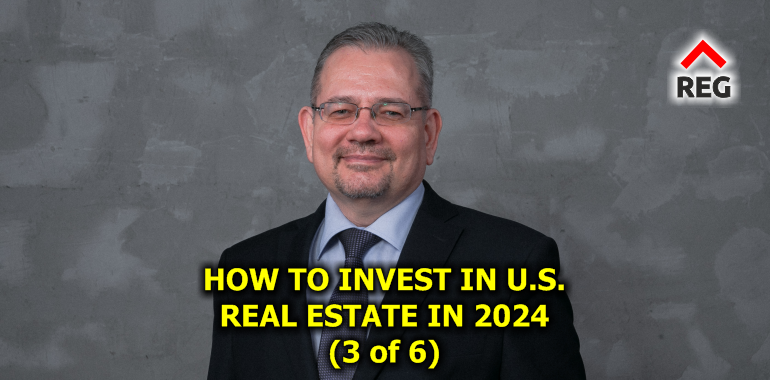YouTube
Podcasts
MAVE | Apple Podcasts | Google Podcasts | Spotify |Яндекс Музыка | VK | SoundStream | Deezer | Castbox | Overcast | Pocket Casts | Podcast Addict
Want to buy real estate in the USA? Write to us on WhatsApp and Real Estate Group will find the best options for you. Everyone buys from us!
Chapter 2: How to Choose a Broker or Real Estate Agency in 2024
If you are interested in investing in the U.S. real estate market in 2024, you may want to consider working with a broker or a real estate agency to help you find and manage the best properties for your goals. A broker or an agent can provide you with valuable services such as market analysis, property valuation, listing, marketing, negotiation, closing, and property management. However, not all brokers and agents are created equal, and choosing the right one can make a big difference in your success and satisfaction. In this chapter, Real Estate Group will discuss how to choose a broker or a real estate agency in 2024, taking into account the two investment strategies we described in the previous chapter: buying and flipping, and buying and holding. Real Estate Group will also cover what you need to pay attention to when choosing a broker or an agent, how much their services cost, and what the benefits and risks may be in real estate transactions.
Buying and Flipping vs. Buying and Holding
As Real Estate Group explained in the first chapter, buying and flipping is a short-term investment strategy that involves purchasing a property, renovating it, and selling it for a profit within a few months or a year. Buying and holding is a long-term investment strategy that involves purchasing a property, renting it out, and generating a steady income over several years or decades. Depending on which strategy you choose, you may have different needs and expectations from your broker or agent.

If you are buying and flipping, you may want to work with a broker or an agent who has:
- Experience and expertise in the local market and your kind of property
- Access to off-market or distressed properties that can be purchased at a bargain
- Connections with contractors, inspectors, appraisers, and other professionals who can help you with the renovation and sale process
- A proven track record of selling properties quickly and for a high price
- A strong marketing plan and network to attract buyers and generate multiple offers
- A flexible and responsive communication style to keep you updated and informed
- A competitive and negotiable commission rate that reflects the value they provide
If you are buying and holding, you may want to work with a broker or an agent who has:
- Experience and expertise in the local market and your kind of property
- Access to properties that have a high rental demand, a low vacancy rate, and a stable income
- Connections with property managers, tenants, landlords, and other professionals who can help you with the rental and maintenance process
- A proven track record of finding and retaining quality tenants and maximizing your cash flow
- A comprehensive and transparent property management service that covers all aspects of your investment
- A reliable and consistent communication style to keep you updated and informed
- A reasonable and fixed fee structure that reflects the value they provide
How to Find a Broker or a Real Estate Agent in 2024
There are many ways to find a broker or a real estate agent in 2024, but some are more effective and efficient than others. Based on the web search results, Real Estate Group lists some of the best methods for finding a broker or agent, arranged from best to worst:
Use an agent-matching service: This is a free, fast, and easy way to find a broker or an agent who matches your criteria and preferences. An agent-matching service, such as HomeLight, will ask you a few questions about your property, your goals, your location, and your budget, and then use data and algorithms to connect you with the best brokers or agents in your area. You can compare their ratings, reviews, performance, and fees, and choose the one you like the most. An agent-matching service can also provide you with additional services, such as cash offers, trade-in programs, and home loans.
Ask for referrals: This is a simple and personal way to find a broker or an agent who has a good reputation and a satisfied clientele. You can ask your friends, family, neighbors, coworkers, or other investors who have bought or sold properties in your area, whether they can recommend a broker or an agent they have worked with in the past. You can also ask them about their experience, their results, and their feedback. However, make sure to do your own research and interview the broker or the agent before hiring them, as your needs and expectations may differ from theirs.
Search online: This is a convenient and accessible way to find a broker or an agent who has a strong online presence and a large portfolio. You can use search engines, such as Google or Bing, to look for brokers or agents in your area, and filter them by keywords, ratings, reviews, specialties, and credentials. You can also use online directories, such as Zillow, Realtor, or Trulia, to browse through listings and profiles of brokers or agents, and contact them directly. However, be aware that online information may not be accurate, updated, or verified, and that some brokers or agents may pay for advertising or promotion, which may affect their ranking or visibility.
Visit open houses: This is a fun and interactive way to find a broker or an agent who has a good personality and a professional demeanor. You can attend open houses in your area, and observe how the broker or the agent interacts with potential buyers, presents the property, and handles questions and objections. You can also chat with them, ask for their business card, and follow up with them later. However, keep in mind that the broker or the agent at the open house may not be the listing agent, but a buyer’s agent who is looking for clients, and that they may not have the experience or expertise you are looking for.
Contact local brokerages: This is a traditional and formal way to find a broker or an agent who has a reputable and established brand. You can call or visit local brokerages in your area, and ask them to recommend a broker or an agent who can help you with your investment goals. You can also check their websites, brochures, and testimonials, and compare their services, fees, and results. However, be aware that some brokerages may have a high turnover rate, a low quality standard, or a high pressure sales culture, and that they may not have your best interest at heart.
What to Pay Attention to When Choosing a Broker or a Real Estate Agent in 2024
When choosing a real estate broker or agent in 2024 Real Estate Group draws your attention to the following factors:
License and credentials: You should make sure that the broker or the agent is licensed by the state and has the required education and training to practice real estate. You should also check if they have any additional credentials, such as certifications, designations, or memberships, that indicate their level of expertise, specialization, or professionalism. You can verify their license and credentials online, or ask them to provide proof.
Experience and track record: You should ask the broker or the agent how long they have been in the business, how many properties they have bought or sold, how many clients they have served, and what kind of properties they have dealt with. You should also ask for their sales volume, list-to-sale ratio, average days on market, and client testimonials. You should look for a broker or an agent who has a proven track record of success and satisfaction, and who has experience and knowledge in the local market and your kind of property.
Communication and availability: You should ask the broker or the agent how they communicate with their clients, how often they update them, and how they handle issues or problems. You should also ask them how many clients they are currently working with, how much time they can devote to you, and how they balance their workload. You should look for a broker or an agent who has a flexible and responsive communication style, who is available and accessible, and who can keep you informed and involved throughout the process.
Marketing and network: You should ask the broker or the agent how they market and advertise their properties, what tools and platforms they use, and what strategies and techniques they employ. You should also ask them about their network and connections with other real estate professionals, such as contractors, inspectors, appraisers, lenders, attorneys, and property managers. You should look for a broker or an agent who has a strong marketing plan and network, who can reach and attract a large and qualified pool of buyers or sellers, and who can leverage their relationships and resources to help you achieve your goals.
Services and fees: You should ask the broker or the agent what services they provide, what they include and exclude, and what they charge for them. You should also ask them about their commission rate, their fee structure, their payment method, and their cancellation policy. You should look for a broker or an agent who provides comprehensive and transparent services, who charges reasonable and negotiable fees, and who offers flexible and fair terms.
How Much Do Broker or Real Estate Agent Services Cost in 2024
The cost of broker or real estate agent services in 2024 may vary depending on the type, scope, and quality of the services, as well as the location, market condition, and property value. However, based on the web search results, Real Estate Group lists the average cost of a real estate broker or agent in 2024:
Commission: This is the most common way that brokers or agents get paid for their services. Commission is a percentage of the final sale price of the property, which is usually split between the listing agent and the buyer’s agent. The average commission rate in 2024 is 5%, which means that for a $500,000 property, the total commission would be $25,000, and each agent would receive $12,500. However, commission rates are not fixed, and they can vary depending on the market condition, the property value, and the negotiation skills of the agents. Some agents may charge a higher or lower commission rate, or offer a flat fee or a sliding scale, depending on the services they provide and the results they achieve.
Fee: This is another way that brokers or agents get paid for their services. Fee is a fixed amount of money that is agreed upon before the transaction, and is usually paid upfront or at closing. Fee can cover the entire service, or only a part of it, depending on the agreement between the parties. Fee can be an alternative to commission, or a supplement to it, depending on the situation. For example, some agents may charge a fee for listing or marketing the property, and then a commission for selling it. Some agents may charge a fee for finding or showing the property, and then a commission for buying it. The average fee in 2024 is $2,000, which means that for a $500,000 property, the total fee would be $2,000, and the agent would receive $2,000. However, fee rates are not fixed, and they can vary depending on the market condition, the property value, and the negotiation skills of the agents. Some agents may charge a higher or lower fee, or offer a percentage or a contingency, depending on the services they provide and the results they achieve.
Other costs: These are the additional costs that may be incurred during the transaction, and are usually paid by the buyer or the seller, or shared between them, depending on the agreement between the parties. These costs may include closing costs, such as title insurance, escrow fees, appraisal fees, inspection fees, attorney fees, recording fees, and transfer taxes. These costs may also include maintenance costs, such as repairs, renovations, cleaning, staging, landscaping, and utilities. The average closing cost in 2024 is 3% of the sale price, which means that for a $500,000 property, the total closing cost would be $15,000. The average maintenance cost in 2024 is 1% of the sale price, which means that for a $500,000 property, the total maintenance cost would be $5,000. However, closing costs and maintenance costs are not fixed, and they can vary depending on the market condition, the property condition, and the negotiation skills of the parties. Some parties may pay more or less, or offer credits or concessions, depending on the services they receive and the results they achieve.
Want to buy real estate in the USA? Write to us on WhatsApp and Real Estate Group will find the best options for you. Everyone buys from us!
What are the Benefits and Risks of Working with a Broker or a Real Estate Agent in 2024
Working with a broker or a real estate agent in 2024 can have many benefits and risks, depending on the quality, reliability, and compatibility of the broker or the agent. Here are some of the possible benefits and risks of working with a broker or agent in 2024 according to Real Estate Group:
Benefits:
Save time and effort: A broker or an agent can handle the entire process of buying or selling a property, from finding and evaluating the property, to listing and marketing the property, to negotiating and closing the deal, to managing and maintaining the property. This can save you a lot of time and effort, and allow you to focus on your other priorities and goals.
Access more opportunities: A broker or an agent can have access to more properties and buyers or sellers than you can find on your own, especially if they have a large network and a strong online presence. This can increase your chances of finding the best property or the best buyer or seller for your needs and preferences, and help you achieve your investment goals faster and easier.
Get expert advice and guidance: A broker or an agent can have a lot of experience and knowledge in the real estate market and your kind of property, and can provide you with valuable advice and guidance throughout the process. This can help you make informed and confident decisions, avoid common mistakes and pitfalls, and overcome any challenges or problems that may arise.
Negotiate better terms and prices: A broker or an agent can have a lot of skills and techniques in negotiating and closing the deal, and can represent your best interest and advocate for your position. This can help you get the best terms and prices for your property, and maximize your profit and return on investment.
Risks:
Pay high fees or commissions: A broker or an agent can charge you high fees or commissions for their services, which can reduce your profit and return on investment. You may also have to pay other costs, such as closing costs and maintenance costs, which can further reduce your profit and return on investment. You may also have to pay upfront or at closing, which can affect your cash flow and budget.
Encounter dishonest or incompetent brokers or agents: A broker or an agent may not be honest or competent in their services, and may misrepresent or omit important information, overpromise or underdeliver on their results, or breach or violate their contract or fiduciary duty. This can cause you to lose money, time, or opportunities, and expose you to legal or ethical issues or disputes.
Experience conflicts or misunderstandings: A broker or an agent may not be compatible or communicative with you, and may not understand or respect your needs and expectations, or share your vision and goals. This can cause you to have conflicts or misunderstandings with them, and affect your relationship and satisfaction.






